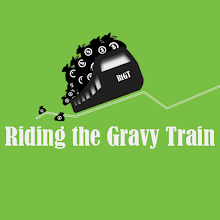Liars, Liars, economy on fire.

President Hoover said the same thing, students of financial history and the Great Depression will note :
Or perhaps they're not liars after all, given that just last week President Bush admitted the economy is a house of cards.
Bush said he initially thought the government could deal with the trouble on Wall Street "one issue at time." But the financial "house of cards ... started to stretch beyond just Wall Street in the sense of the effects of failure. So when one card started to go, we were worried about the whole deck coming down."
The pattern we see currently in the US is virtually identical to the pattern observed in Japan during that country's massive real estate and stock market boom and bust in the 1980's, replete with bank failures and government bail-outs. Research "Japanese lost decade" to marvel at the similarities, and check a long-term chart of the NIKKEI to see what stock markets might have in store.
Marvel too at the irony - "experts" such as Bernanke himself said that the Japanese government should have allowed banks to fail and the free market to operate properly to avoid the subsequent recession in Japan which is now 20 years old. Yet now Bernanke is in a mad rush for a taxpayer bail-out of banks that he recently said were sound.
It can be tough to figure. Are these "leaders" and "experts" liars or simply completely incompetent? Could they not see something so obvious coming, when history contains so many examples of this happening and when even so many humble observers predicted it with precision as evidenced in this very blog?
If they are liars, why should we trust them or their hasty bail-out packages now? If they are incompetent, why should we trust them or their plans now? Why should we trust their assertions the economy will collapse without the taxpayer bailing-out the rich speculators and the very banks that econouraged consumers to go so deeply into debt?
These "experts" remain either liars or wrong. Take your pick. They are not to be believed, their ideas are not to be trusted, and their plan will not work since it fails to even slightly address the root of the problem. Banning short sales and buying bad assets will reduce liquidity, or at best prolong the inevitable.
The consumer will not get more credit, nor will the family who incurred too much mortgage debt on a clearly inflated home "value" be able to afford their mortgage. If they are allowed to make reduced payments in order to keep their speculation (they are actually amateur speculators and mortgage debtors, not home owners) then they'll just overpay even more, live under the cross of their poor debt decisions even longer, and those who responsbily saved cash & credit will not be able to step in and purchase those properties at the proper pricing as seen in foreclosure sales, and the real estate & mortgage market will simply take that much longer to correct.
As seen in the Japanese example, banks will hoard the cash or liquidity provided to them by the taxpayer and will not trust lending to each other or to businesses and consumers overburdened with debt and leverage.
Consider also Treasury Secretary Henry Paulson's obvious conflict-of-interest. As recently as 2005 he "earned" almost $38 million in one year as CEO of Goldman Sachs. His net worth is estimated at roughly $800 million and it is reported that much of that is in Goldman Sachs shares.
Who is really being bailed-out? Some say the economy is being saved, and some say the taxpayer is being robbed.
"The whole world, including the U. S. has benefited…from credit availability."
– Henry Paulson, Times Online, September 18 2007
"There is no way to stabilize the markets other than through government intervention."
– Henry Paulson, Wall Street Journal, September 24 2008
Note too that no economists have been consulted on the merits of the bailout or its likely efficacy, rather almost 200 prominent economists are against it. This blog covers that beat far better than we could hope to. For the most part we'll stick with trade ideas and we expect to diarize some trades very soon.
We're looking at good shorts, especially in Canada which has so far effectively skirted the global stock market crashes, and at taking initial positions in a few beaten-down uranium and perhaps precious metals stocks.
If we must guess, we say that markets may rally somewhat on a confirmed bail-out. Perhaps even rally enough to fool many into thinking we're in a new bull market. The alternate view is that the expectation of a bail-out is already factored into the markets. Regardless of whether such a rally occurs or not, we believe the general markets will be much lower in the coming months if not weeks or days.
We receive no remuneration or incentive directly or indirectly in any way, shape, or form for buying or selling the stocks we do, or mentioning them in this blog. If we hold existing positions we divulge the fact, otherwise we generally buy and sell as diarized here. This blog itself is merely a diarizing of our thoughts and trades and is in no way whatsoever to be considered investment advice of any kind. Always without fail consult your broker or investment advisor before making any investing decisions.
To be notified when this blog is updated :
Please e-mail christianguinness@hotmail.com with "Subscribe to blog" in the subject line or click here to do so automatically if your computer is configured accordingly. We have never shared our mailing list with anyone, nor have we ever sent anything other than update notices for this blog to our mailing list. We only send update notifications when a trade idea is diarized, not if an update only contains general market commentary.

<< Home